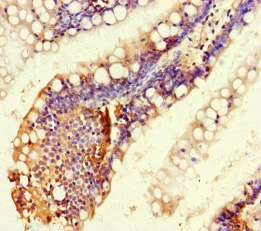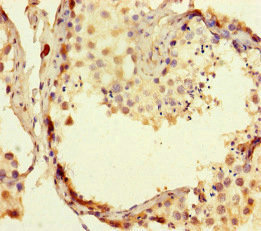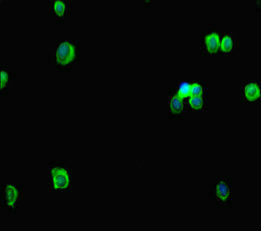Full Product Name
Rabbit anti-Homo sapiens (Human) RTEL1 Polyclonal antibody
Alternative Names
RTEL1 antibody; C20orf41 antibody; KIAA1088 antibody; NHLRegulator of telomere elongation helicase 1 antibody; EC 3.6.4.12 antibody; Novel helicase-like antibody
Immunogen
Recombinant Human Regulator of telomere elongation helicase 1 protein (975-1219AA)
Immunogen Species
Homo sapiens (Human)
Conjugate
Non-conjugated
The RTEL1 Antibody (Product code: CSB-PA020563LA01HU) is Non-conjugated. For RTEL1 Antibody with conjugates, please check the following table.
Available Conjugates
| Conjugate |
Product Code |
Product Name |
Application |
| HRP |
CSB-PA020563LB01HU |
RTEL1 Antibody, HRP conjugated |
ELISA |
| FITC |
CSB-PA020563LC01HU |
RTEL1 Antibody, FITC conjugated |
|
| Biotin |
CSB-PA020563LD01HU |
RTEL1 Antibody, Biotin conjugated |
ELISA |
Purification Method
>95%, Protein G purified
Concentration
It differs from different batches. Please contact us to confirm it.
Buffer
Preservative: 0.03% Proclin 300
Constituents: 50% Glycerol, 0.01M PBS, PH 7.4
Tested Applications
ELISA, IHC, IF
Recommended Dilution
| Application |
Recommended Dilution |
| IHC |
1:20-1:200 |
| IF |
1:50-1:200 |
Storage
Upon receipt, store at -20°C or -80°C. Avoid repeated freeze.
Lead Time
Basically, we can dispatch the products out in 1-3 working days after receiving your orders. Delivery time maybe differs from different purchasing way or location, please kindly consult your local distributors for specific delivery time.
Usage
For Research Use Only. Not for use in diagnostic or therapeutic procedures.







